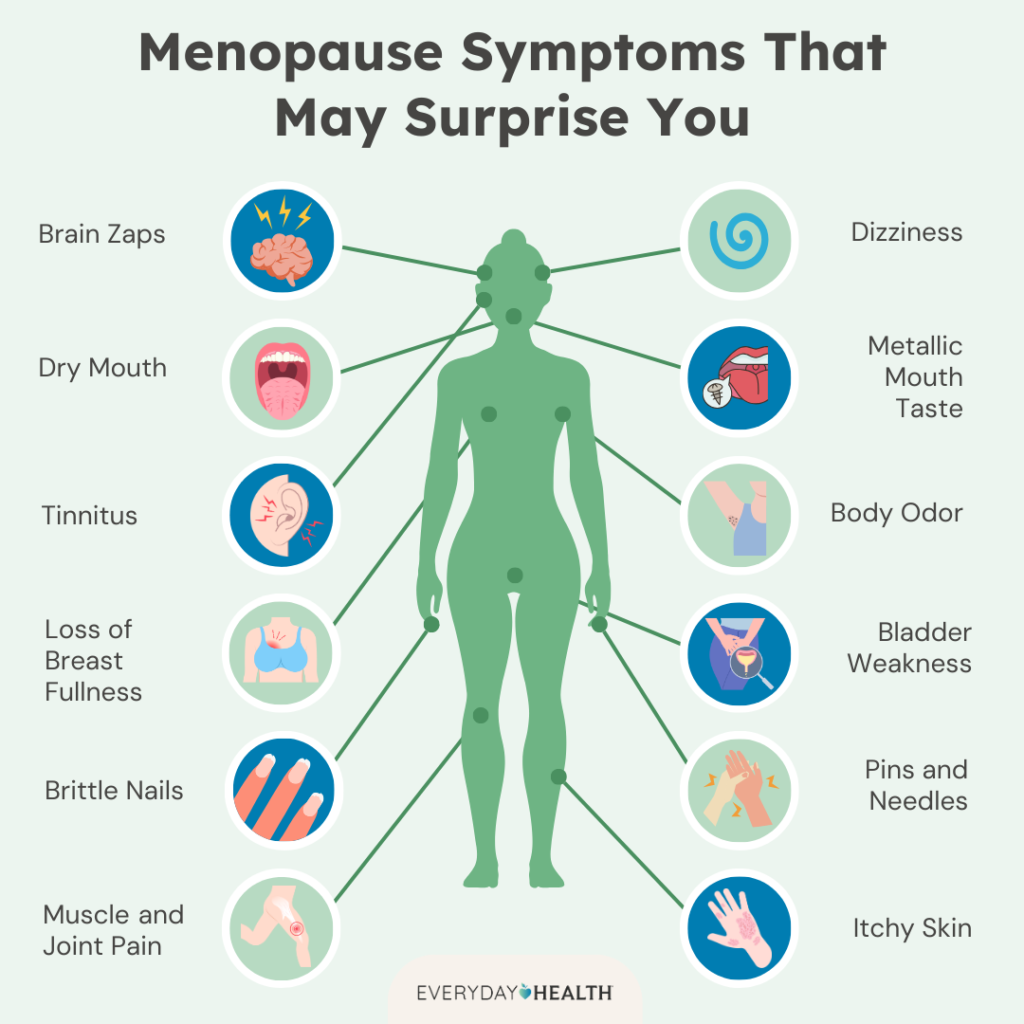This document provides insightful approaches to coping with menopausal symptoms. Strategies such as regular exercise, managing mood swings and stress, and utilizing medical and natural remedies can greatly alleviate the challenges associated with menopause. Prioritizing self-care is essential in ensuring a smooth transition through this significant phase in a woman’s life.
Menopause is a natural biological process that marks the end of a woman’s reproductive years. While it is a normal transition, it comes with several physical and emotional challenges. Knowing how to manage these issues can help make this phase smoother and more comfortable. While it is a normal biological process, many women experience various symptoms that affect their physical and emotional well-being. Recognizing these challenges and learning how to cope effectively can help navigate this transition smoothly.

Common Problems Associated with Menopause
1. Hot Flashes and Night Sweats
Hot flashes are one of the most common and bothersome symptoms of menopause. They are sudden, intense sensations of heat that often spread throughout the body, particularly the face, neck, and chest. These episodes can last anywhere from a few seconds to several minutes and may occur multiple times a day. They are often accompanied by sweating, heart palpitations, dizziness, and a flushed appearance.
2. Mood Swings and Emotional Changes
Menopause is not just a physical transition—it significantly affects emotional well-being. Many women experience mood swings, increased anxiety, and bouts of depression due to hormonal fluctuations. These emotional shifts can feel overwhelming, but understanding their causes and management strategies can help ease the transition.

3. Sleep Disturbances
Sleep problems are a significant concern for many women during menopause. Hormonal shifts, particularly the decline in estrogen and progesterone, can disrupt the body’s natural sleep-wake cycle, making restful sleep harder to achieve. Insomnia, frequent awakenings, and poor sleep quality can have serious consequences on mental health, mood, and daily energy levels. Understanding these challenges and applying effective strategies can help restore better sleep patterns.
4. Weight Gain and Metabolic Changes
As metabolism slows down, many women notice weight gain, especially around the abdomen. This can lead to self-esteem issues and increased risk of chronic diseases like diabetes and heart problems.
5. Bone Health and Osteoporosis
Menopause significantly affects bone health due to the decline in estrogen levels, a hormone essential for maintaining bone density. As estrogen decreases, bones become weaker and more fragile, leading to an increased risk of osteoporosis—a condition characterized by brittle bones and a heightened likelihood of fractures. Understanding this risk and taking preventive measures can help protect bone strength and overall health.
6. Heart Health Concerns
Hormonal fluctuations can impact heart health by increasing cholesterol levels and blood pressure, making menopausal women more vulnerable to cardiovascular diseases.
7. Vaginal Dryness and Discomfort
A decline in estrogen levels can lead to vaginal dryness, making intimacy uncomfortable or painful. Some women may also experience urinary tract infections more frequently.
How to Deal with Menopause Symptoms
1. Maintaining a Healthy Diet
- Eat calcium-rich foods to support bone health.
- Include fruits, vegetables, and whole grains for overall well-being.
- Stay hydrated to reduce bloating and manage body temperature.
2. Regular Exercise
- Engage in weight-bearing exercises to strengthen bones.
- Try yoga or meditation for relaxation and stress relief.
- Incorporate cardio workouts to improve heart health.
3. Managing Mood Swings and Stress
- Practice mindfulness and breathing exercises.
- Seek support from loved ones or professional counseling.
- Ensure adequate sleep and avoid excessive caffeine or alcohol.
4. Medical and Natural Remedies
- Consider hormone replacement therapy (HRT) after consulting a doctor.
- Use natural remedies like herbal teas and supplements (such as black cohosh or evening primrose oil) for relief.
- Try vaginal moisturizers and lubricants to ease discomfort.
5. Prioritizing Self-Care
- Create a bedtime routine for better sleep.
- Engage in hobbies to boost mental health.
- Stay socially active to reduce feelings of isolation.
Conclusion
Menopause is a significant phase in a woman’s life that brings various challenges. However, with the right lifestyle adjustments and support, the symptoms can be effectively managed. By taking care of both physical and mental health, women can embrace this stage with confidence and comfort.
Author (Dr Honey Gemavat ) is an Obstetrician & Gynaecologist practicing in western suburbs of Mumbai and experienced in comprehensive management of Menopause and its problems.